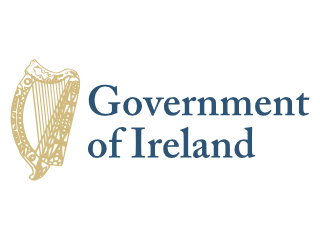Celtic tribes arrived on the island between 600 and 150 B.C. Invasions by Norsemen that began in the late 8th century were finally ended when King Brian BORU defeated the Danes in 1014. Norman invasions began in the 12th century and set off more than seven centuries of Anglo-Irish struggle marked by fierce rebellions and harsh repressions. The Irish famine of the mid-19th century saw the population of the island drop by one third through starvation and emigration. For more than a century after that the population of the island continued to fall only to begin growing again in the 1960s. Over the last 50 years, Ireland's high birthrate has made it demographically one of the youngest populations in the EU. The modern Irish state traces its origins to the failed 1916 Easter Monday Uprising that touched off several years of guerrilla warfare resulting in independence from the UK in 1921 for 26 southern counties; six northern (Ulster) counties remained part of the UK. Unresolved issues in Northern Ireland erupted into years of violence known as the "Troubles" that began in the 1960s. The Government of Ireland was part of a process along with the UK and US Governments that helped broker what is known as The Good Friday Agreement in Northern Ireland in 1998. This initiated a new phase of cooperation between the Irish and British Governments. Ireland was neutral in World War II and continues its policy of military neutrality. Ireland joined the European Community in 1973 and the euro-zone currency union in 1999. The economic boom years of the Celtic Tiger (1995-2007) saw rapid economic growth, which came to an abrupt end in 2008 with the meltdown of the Irish banking system. Today the economy is recovering, fueled by large and growing foreign direct investment, especially from US multi-nationals.
Ireland is a parliamentary republic.
Source: CIA World Factbook
Members:
Resources
Displaying 46 - 50 of 137European Union (Household Food Waste and Bio-waste) Regulations 2013 (S.I. No. 71 of 2013).
These Regulations promote the segregation and recovery of household food waste. They place obligations: a) on waste collectors to have a separate collection service for household food waste; and b) on the householders who produce food waste to segregate such waste and make it available for separate collection. Producers may alternatively compost the waste on the premises where it arises under specified conditions or take it to authorised facilities such as civic amenity sites, composting sites, anaerobic digestion sites or for incineration.
Circuit Court Rules (Land and Conveyancing Law Reform Act 2009) 2010 (S.I. No. 155 of 2010).
These Rules amend the Circuit Court Rules in relation with proceedings for specified relief and other proceedings under the Land and Conveyancing Law Reform Act 2009.
Implements: Land and Conveyancing Law Reform Act 2009 (No. 27 of 2009). (2009-07-21)
Planning and Development (Amendment) Act 2015 (No. 63 of 2015).
This Act amends the Planning and Development Act, 2000 so as to, among other things: insert a new provision in section 28 on Ministerial guidelines; insert a new provision in section 34 on assessment of applications for new development; provide for the making of the planning scheme following an appeal made under section 169; provide with respect to a determination by the Board whether the extent and character of the modification in a planning scheme would be likely to have a significant effect on the environment (within the meaning of Annex II of Directive 2001/42/EC) or on a European site;
Local Government Reform Act 2014 (No. 1 of 2014).
This Act provides for the significant reorganisation of local government structures and the strengthening of governance and accountability in local government. It, among other things: reformulates a new integrated county/sub-county relationship, with the establishment of a comprehensive and modern system of municipal governance; replaces the existing regional structures with new consolidated regional assemblies; provides for further devolution of functions from central level to local government.
Land Commission (Dissolution) Act Regulations 2015 (S.I. No. 636 of 2015).
These Regulations, made by the Minister for Agriculture, Food and the Marine in exercise of the powers conferred on him or her by section 12 of the Land Commission (Dissolution) Act 1992, provide for the transfer of accounts held in the name of the former Irish Land Commission to be transferred into the accounts of the Minister for Agriculture, Food and the Marine.


